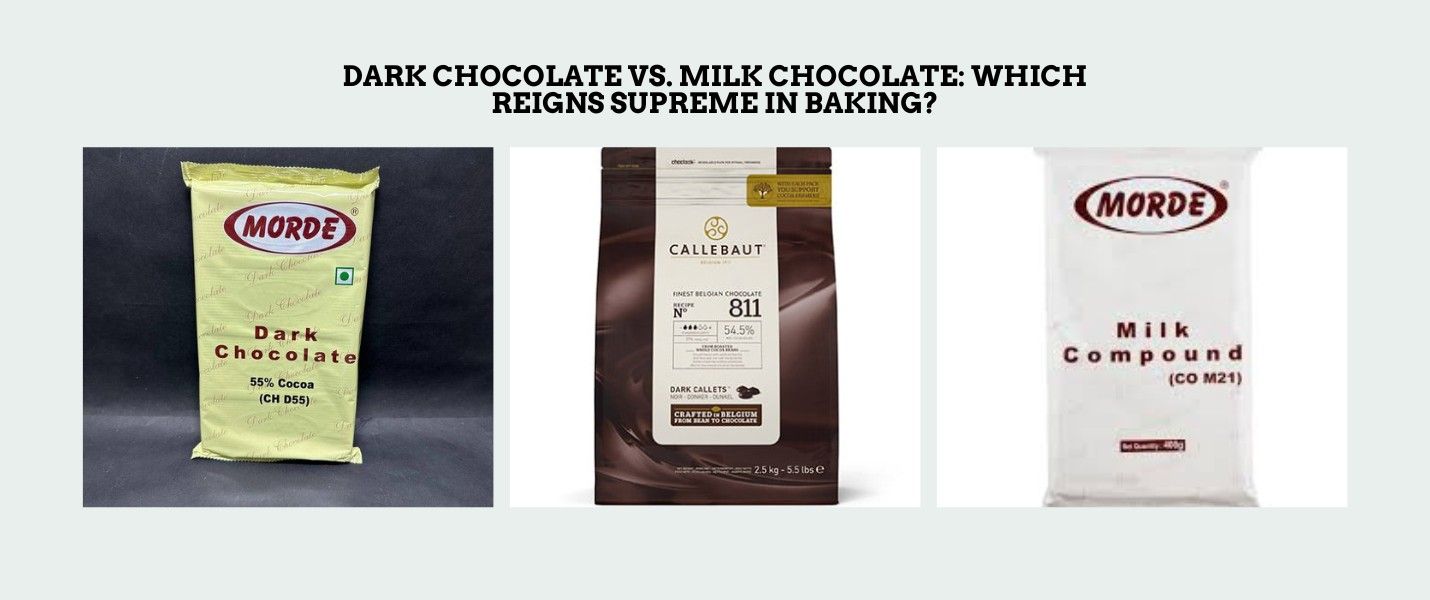

Dark Chocolate vs. Milk Chocolate: Which Reigns Supreme in Baking?
Chocolate has been a cherished ingredient in baking for centuries, dating back to ancient civilizations where cocoa was used in beverages and medicinal concoctions. Fast forward to today, chocolate plays a central role in countless desserts around the globe. Among the many types of chocolate available, dark chocolate and milk chocolate are the two most debated in baking. Both have their unique characteristics, and bakers often wonder which reigns supreme in the kitchen.
Composition and Nutritional Profile
Understanding the basic composition of dark and milk chocolate can shed light on their differences and how they behave in baking.
Cocoa Content:
- Dark Chocolate (like Morde Dark Chocolate) typically contains a high percentage of cocoa (70% or more), giving it a rich and intense flavor.
- Milk Chocolate contains a lower cocoa percentage, often around 30%–50%, and is blended with milk powder or condensed milk, which results in a creamier texture.
Sugar Levels:
Dark chocolate has less sugar compared to milk chocolate. Premium dark chocolates like Morde Dark Compound focus on delivering rich cocoa flavor without excessive sweetness. Milk chocolate, on the other hand, is sweeter, making it appealing to those with a preference for less bitterness.
Fat Content:
Dark chocolate generally contains a higher amount of cocoa butter, contributing to its dense, firm texture, while milk chocolate has added dairy fats that make it smoother and creamier.
Comparative Table: Dark Chocolate vs. Milk Chocolate
| Aspect | Dark Chocolate | Milk Chocolate |
|---|---|---|
| Cocoa Content | 70% or higher | 30%–50% |
| Sugar Levels | Low | High |
| Fat Content | Higher in cocoa butter | Higher in dairy fat |
| Flavor Profile | Rich, intense, and slightly bitter | Sweet, creamy, and mild |
| Melting Point | Higher, requires more heat | Lower, melts quickly |
| Best Use | Complex desserts like brownies, tarts, ganache | Lighter desserts like cookies, cakes, mousse |
| Health Benefits | High in antioxidants, lower sugar content | Fewer antioxidants, higher in sugar |
| Price | More expensive due to high cocoa content | Generally more affordable |
Baking Properties
The way chocolate behaves during baking is vital for achieving the desired outcome in recipes.
Melting Points:
Dark chocolate has a higher melting point due to its higher cocoa content and less sugar, making it more stable at higher temperatures. Dark chocolate for baking, like Morde Dark Chocolate, melts smoothly and is perfect for creating silky ganache or firm coatings. Milk chocolate melts at a lower temperature, making it more suitable for recipes where a quicker melt is needed, such as fillings or drizzles.
Behavior in Different Recipes:
Morde Dark Chocolate shines in recipes requiring a deep, intense chocolate taste like brownies, chocolate cakes, or rich mousses. Milk chocolate is perfect for recipes that benefit from a creamy, sweet texture, such as chocolate chip cookies, lighter cakes, and frostings.
Best Chocolate of Morde by Chefspoint:
Milk Chocolate (CHM21) / Morde / 500gms
Morde’s Milk Chocolate (CHM21) delivers a rich, creamy texture and deep cocoa flavor, making it a favorite for chocolate enthusiasts. This versatile 500-gram pack is perfect for creating everything from ganaches to baked goods, ensuring delightful results in any recipe.
Dark Chocolate (CHD 55) / Morde / 500gms
Morde’s Dark Chocolate (CHD 55) offers a bold, intense flavor with a satisfying richness that appeals to dark chocolate lovers. Ideal for baking, confections, and gourmet treats, this 500-gram pack enhances your culinary creations with its deep cocoa notes and smooth texture.
Versatility in Recipes
Both dark and milk chocolate have their place in baking, depending on the type of dessert you’re preparing.
Types of Desserts Suited for Each:
- Dark Chocolate: Best for desserts like brownies, truffles, and tarts where a strong chocolate flavor is desired.
- Milk Chocolate: Ideal for lighter desserts like milk chocolate mousse, chocolate chip cookies, or creamy frostings.
Pairing with Other Flavors:
Dark chocolate pairs well with bold flavors like coffee, nuts, berries, and even savory ingredients like sea salt or chili. Milk chocolate complements sweeter flavors like caramel, vanilla, and milk-based desserts.
Cost and Availability
Another factor that influences the choice between dark and milk chocolate is cost.
Price Comparison:
Dark chocolate, especially premium dark chocolate like Morde Dark Chocolate, tends to be more expensive due to its higher cocoa content and quality ingredients. Milk chocolate is generally more affordable, making it a go-to for everyday baking.
Sourcing Quality Chocolate:
Finding high-quality dark chocolate is essential for baking. Morde Dark Compound and Morde Dark Chocolate are excellent options that offer both premium quality and versatility at an affordable price.
Pros and Cons of Dark Chocolate and Milk Chocolate
Dark Chocolate by Chefspoint
| Aspect | Pros | Cons |
|---|---|---|
| Dark Chocolate | Intense, rich flavor perfect for sophisticated desserts. Higher in antioxidants, making it a healthier option. Lower sugar content, ideal for those reducing sugar intake. |
Can be too bitter for some, especially in sweet desserts. More expensive compared to milk chocolate. Requires careful handling due to its higher melting point. |
Milk Chocolate by Chefspoint
| Aspect | Pros | Cons |
|---|---|---|
| Milk Chocolate | Sweet and creamy, appealing to a wide audience. Easier to handle in recipes due to its lower melting point. More affordable and readily available. |
Lower cocoa content, offering less intense flavor. Higher sugar content, which might be too sweet for certain recipes. Fewer health benefits compared to dark chocolate. |
Conclusion
There is no clear winner in the battle between dark chocolate and milk chocolate—it all depends on your recipe and personal preference. If you're baking something that calls for a deep, complex chocolate flavor, Morde Dark Chocolate with its smooth and intense profile is an excellent choice. Milk chocolate is the better option for lighter, sweeter desserts or recipes that don’t need a strong chocolate presence.
Share views on Dark Chocolate vs. Milk Chocolate: Which Reigns Supreme in Baking?
Please keep your views respectful and not include any anchors, promotional content or obscene words in them. Such comments will be definitely removed and your IP be blocked for future purpose.
Blog Categories
Blog Tags
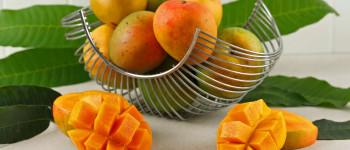 25th May 2024
25th May 2024
 13th Oct 2025
13th Oct 2025
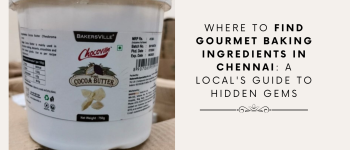 15th Oct 2024
15th Oct 2024
 14th May 2024
14th May 2024
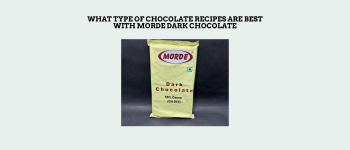 17th Dec 2024
17th Dec 2024
 9th Sep 2025
9th Sep 2025
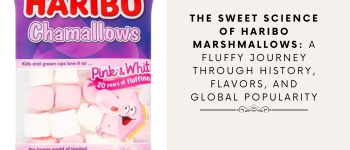 23rd Dec 2024
23rd Dec 2024
 5th Oct 2025
5th Oct 2025
 28th Dec 2024
28th Dec 2024
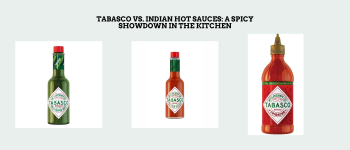 11th Nov 2024
11th Nov 2024
 10th Nov 2025
10th Nov 2025
 21st Dec 2024
21st Dec 2024
 13th Oct 2025
13th Oct 2025
 30th Nov 2024
30th Nov 2024
 10th Nov 2025
10th Nov 2025
